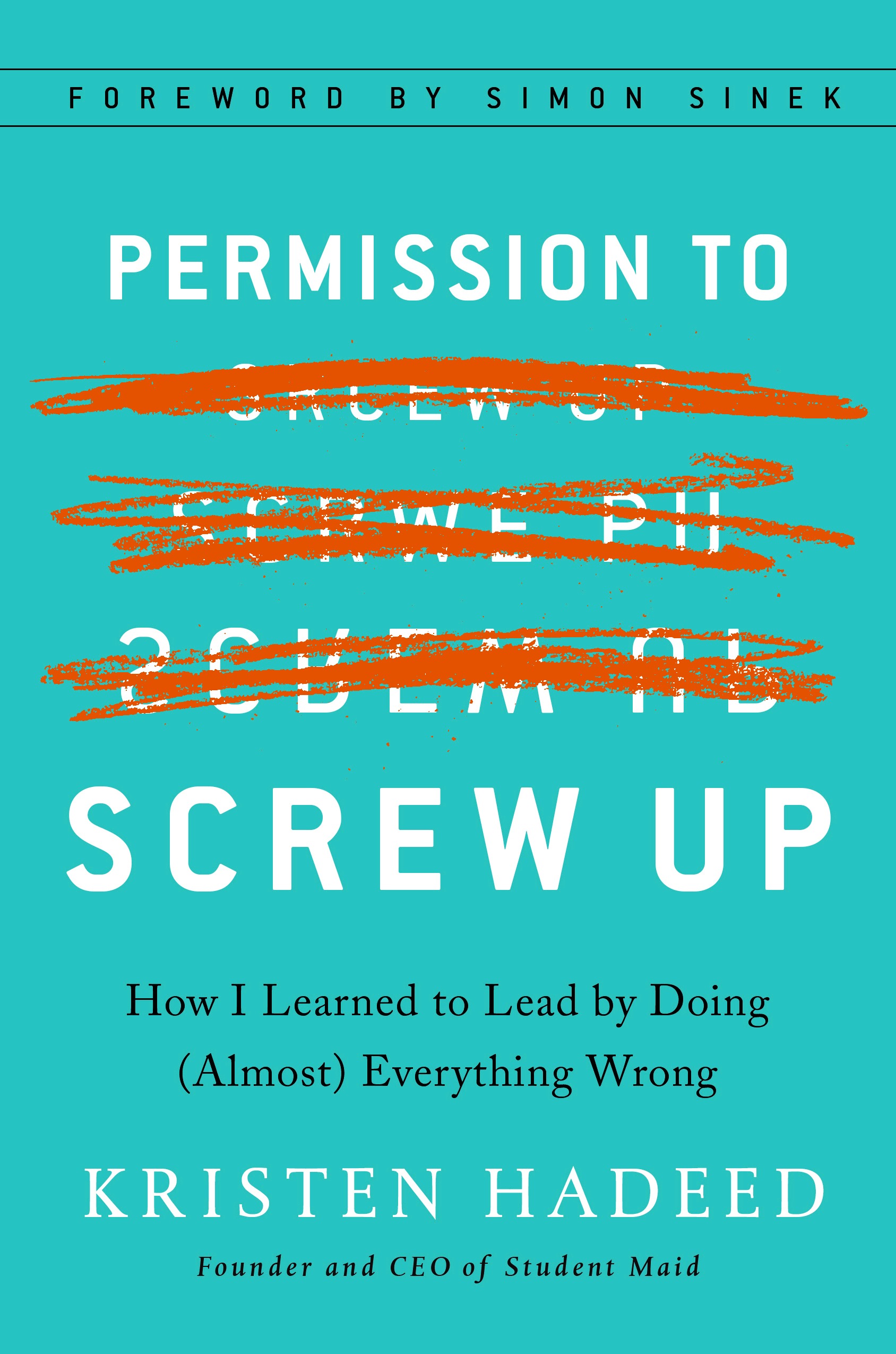
It had been about two years since I graduated from college and I still hadn’t taken a real vacation. Being in constant work mode running my start-up, Student Maid, had become my new normal; I’d forgotten what it felt like to take some time for myself. I finally hit a breaking point and told managers Erin and Abby I needed to get away, and thankfully, they agreed to hold down the fort.
Before I left, I made them the list of all lists. I thought of every potential situation that might occur while I was gone and spelled out exactly how to handle each one. I could practically taste the room service I would soon be ordering from my hotel bed.
By 10 a.m. the morning of my trip, I was all checked in and sitting at my gate. I stared at my phone while I waited for my zone to be announced. No missed calls, no texts, no emails. I took a deep, relaxing breath as I thought about all the sleeping in I’d be doing over the next three days.
And then — mid-breath — the gravity of the situation hit me like a bucket of cold, soapy mop water: This would be the first time I was leaving Student Maid in someone else’s care for an extended period of time . . . and I wouldn’t be able to get back in an hour or two if there was a problem. Anxious thoughts stayed with me as I boarded the plane. By the time we touched down in Atlanta for my layover, I was kind of freaking out.
I turned my phone back on. No texts. No voice mails. I opened my email, holding my phone at arm’s length and wincing as I waited for the app to load. Something bad was definitely going to be in there. I was sure of it. But still . . . nothing. Then, just as I was shoving my briefcase into the overhead compartment on my next flight, I felt my phone vibrate in my back pocket.
Uh oh.
I pulled it out and saw a text from Abby. “SHEPHERD’S PIE. CALL ASAP!!”
Oh no. No no no no no no.
To the rest of the world, Shepherd’s Pie is a traditional English dish of meat and potatoes. But to Erin, Abby and me, “Shepherd’s Pie” was a code that meant something was going horribly wrong at Student Maid. (How did we choose that phrase in particular? No clue.) The rules were very simple: If I ever got a text from one of them containing the words “Shepherd’s Pie,” I had to drop everything, no matter where I was or what I was doing, and call them.

I thought about the other times Erin and Abby had used the code in the past: They’d used it once when a bin of microfiber rags caught fire spontaneously (never knew that could happen) and again when a client was so upset we’d spilled bleach on her designer rug that she threatened to sue us. Each time, I’d come to the rescue. I need to get off this plane, I thought. Right now. My phone vibrated again. This time Erin was calling me. I knew whatever was going on back at the office had to be bad.
As I was about to answer Erin’s call, the flight attendant walked over and sternly told me to put my phone in airplane mode, then lingered nearby to make sure I did. There was nothing I could do. I turned the phone off, tightened my seatbelt and grabbed the barf bag. By the time the plane started its descent, I was absolutely certain Student Maid was in ruins.
But as I turned on my phone and scrolled through the many texts from Erin and Abby, an amazing thing happened: The tone of the messages changed. They went from screaming, “SHEPHERD’S PIE” and “NEED YOU NOW” to, “Everything is OK,” “We figured it out,” and even a “:-).” Turns out a student had slipped and fallen in a client’s garage. Even though she was a little banged up, she didn’t want to go to the clinic and get medical treatment through our workers’ comp coverage. She insisted she was okay, but Erin and Abby weren’t convinced. I’d briefed them on what to do if someone got hurt on the job, of course, but never taught them what to do if someone refused help after getting injured.
Once they realized I wasn’t calling them back, they got in touch with our insurance company to go over what they needed to do legally to ensure they didn’t make the situation any worse. Then they explained every option available to the student as thoroughly as possible until they were sure she was completely okay with her choice to refuse treatment. They got her refusal in writing and sent off the necessary paperwork to the workers’ comp people, and that was it. They didn’t need me. At all.
I wouldn’t even have known what to do in that situation. For the first time since they’d started at Student Maid, Erin and Abby had no choice but to rely on themselves and their own thinking. So they did. They had all the smarts they needed to find the answers. They always had; it’s why I hired them in the first place. The missing piece was opportunity. I was the one who’d been getting in their way. Up until that point, when things got tough, all they had to do was say a code word and I’d hop in my helicopter and zoom right over.
When Erin and Abby told me the story of how they’d solved their own “Shepherd’s Pie” crisis, I could feel their pride through the phone. I realized they were proud because they had found the solution and got to take credit for it instead of acting on my orders. When I returned from my trip, I reminded myself to step back and let them step up more often. I did away with the detailed to-do lists and made it their responsibility to figure things out and handle predicaments as they arose. The more I got out of their way, the more independent and confident they both became. They called me less and less, and I finally felt like I didn’t have to carry everything on my shoulders (or in my briefcase). I don’t remember getting another “Shepherd’s Pie” message after that.
Seeing how much Erin and Abby had grown made me want everyone at Student Maid to experience that kind of self-reliance and the satisfaction that came along with it. And that meant no more protecting anyone from making mistakes. It meant keeping my helicopter grounded. It became my mission to make Student Maid a place where people had room to screw up and to figure things out on their own without having to worry about losing their jobs in the process. I figured that if I succeeded, it would be a win for all of us: Our student workers would gain problem-solving skills that would help them thrive not only in their jobs at Student Maid but also in their future pursuits; they would learn to trust themselves and become more independent; and they’d be able to take pride in their accomplishments. Even when they messed up, they’d learn something. I knew they all could bounce back. In the end, I’d get a stronger, more reliable team — and much more relaxing vacations.
Excerpted from Permission to Screw Up: How I Learned to Lead by Doing (Almost) Everything Wrong by Kristen Hadeed in agreement with Portfolio an imprint of Penguin Publishing Group, a division of Penguin Random House LLC. Copyright © Kristen Hadeed, 2017.
More Must-Reads From TIME
- What Student Photojournalists Saw at the Campus Protests
- How Far Trump Would Go
- Why Maternity Care Is Underpaid
- Saving Seconds Is Better Than Hours
- Welcome to the Golden Age of Ryan Gosling
- Scientists Are Finding Out Just How Toxic Your Stuff Is
- The 100 Most Influential People of 2024
- Want Weekly Recs on What to Watch, Read, and More? Sign Up for Worth Your Time
Contact us at letters@time.com